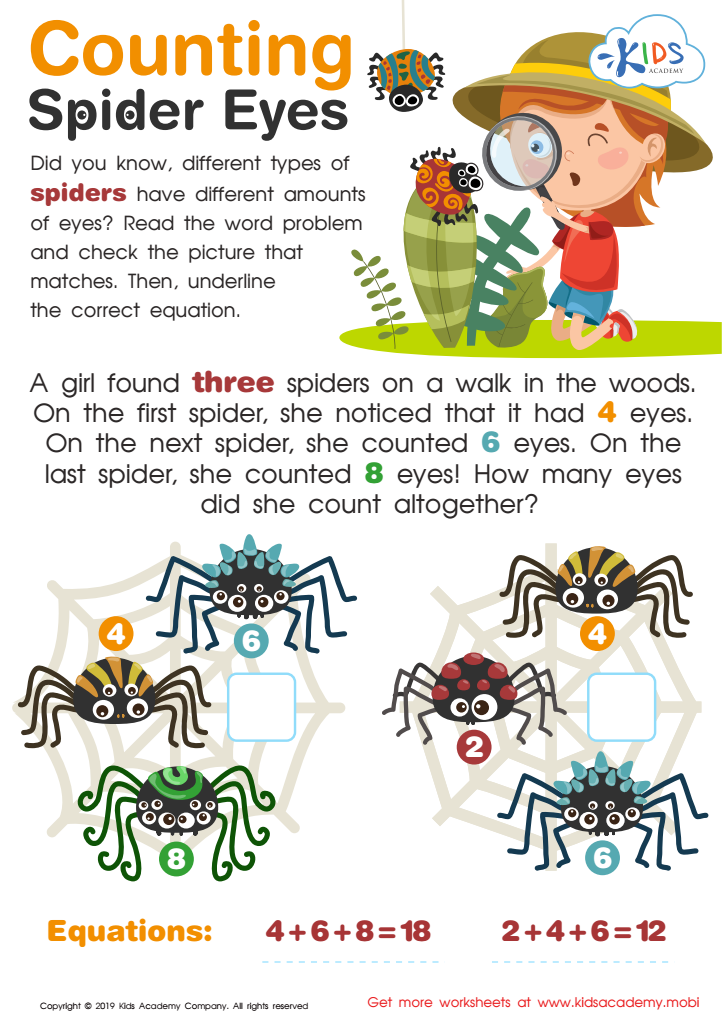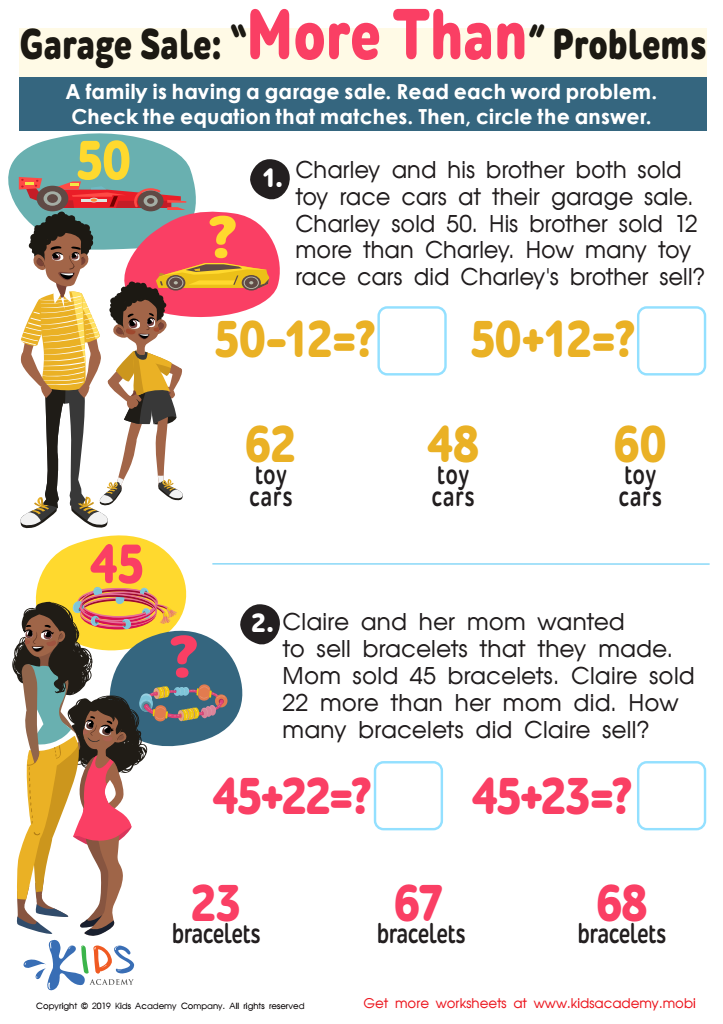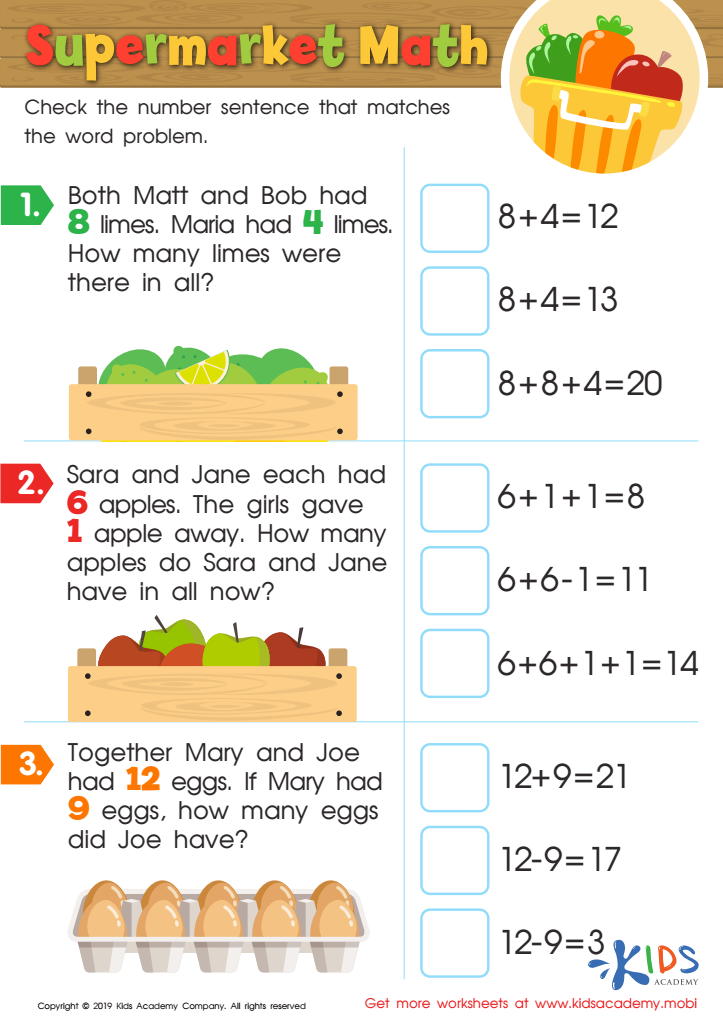Basic Arithmetic Normal Word Problems Worksheets for Ages 3-9
4 filtered results
-
From - To
Enhance your child's problem-solving skills with our Basic Arithmetic Normal Word Problems Worksheets, designed for ages 3-9. These engaging worksheets introduce young learners to fundamental math concepts through relatable and fun scenarios. Each problem encourages critical thinking, allowing children to apply basic addition, subtraction, multiplication, and division in everyday situations. Our clear instructions and colorful illustrations make learning enjoyable and accessible, nurturing a love for math from an early age. Perfect for homeschooling, classroom use, or extra practice, these worksheets are an excellent resource to build a strong arithmetic foundation and boost confidence in young mathematicians. Explore our printables today!


Counting Spider Eyes Worksheet


Garage Sale - More yhan Worksheet


Solve the Problem: Trick–or–treating Worksheet


Supermarket Math Worksheet
Parents and teachers play a crucial role in laying the foundation for children's mathematical skills, and understanding basic arithmetic through normal word problems is essential for ages 3-9. Early exposure to these problems enhances problem-solving abilities and critical thinking skills. Word problems encourage children to engage with mathematics in a relatable context, allowing them to apply mathematical concepts to real-world situations. This practical application not only makes learning more enjoyable but also reinforces their understanding of addition, subtraction, multiplication, and division.
Furthermore, tackling arithmetic word problems helps develop language skills, as children must interpret the wording to identify what is being asked. This integration of math and literacy lays a strong groundwork for future educational success. When parents and teachers emphasize these skills, they foster a positive attitude toward math, reducing anxiety and promoting confidence.
Additionally, problem-solving in arithmetic prepares children for more advanced subjects in later grades, ultimately shaping their overall academic trajectory. By recognizing the importance of basic arithmetic word problems, parents and teachers can actively participate in nurturing a generation of capable, critical thinkers equipped to navigate life's challenges. Hence, prioritizing these learning experiences is vital for holistic child development.
 Assign to My Students
Assign to My Students



.jpg)











